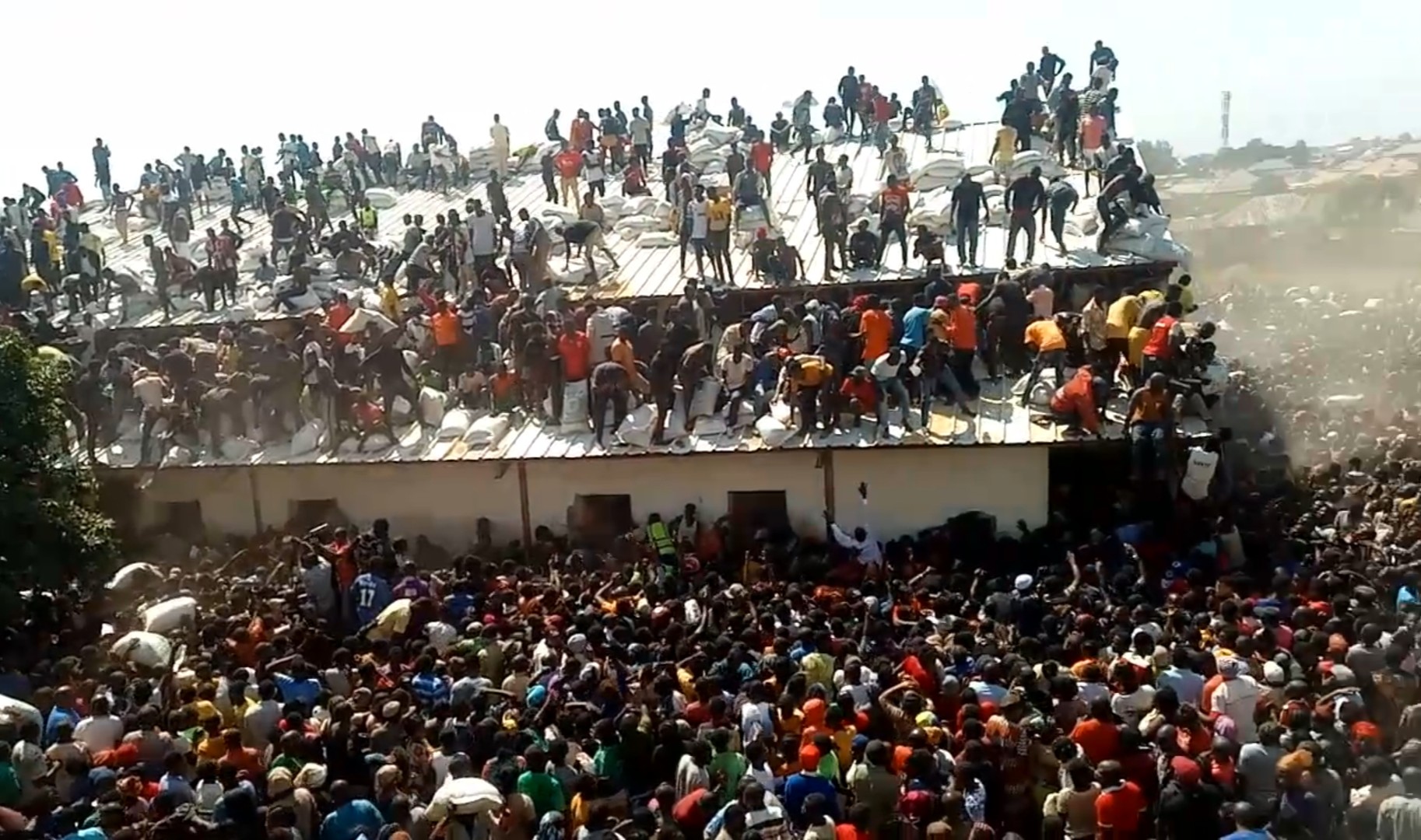Amid Nigeria’s current economic hardship, several interventions have been staged by the government or some of its agencies to “alleviate” the suffering of the people. Sometimes they are ostentatious food or cash handout initiatives that are meant to keep body and soul together. Ironically, some of these interventions have achieved quite the opposite, resulting in stampedes and deaths.
In the last few days, there have been two such incidents. First, on Friday, two female students were crushed to death at the Nasarawa State University, Keffi, when a rice distribution programme by the state governor, Abdullahi Sule, went awry, causing a stampede, deaths, and injuries to at least 23 persons.
In Bauchi, on Sunday, the casualty figure was seven. On that day, a businessman had decided to dole out N5,000 as handouts to people. A crowd gathered. A stampede followed and seven people, including eight-year-old Aisha Usman, lost their lives. All for the equivalent of a $3.70 handout.
There was another one in Lagos in February when five people died. On that occasion, the Nigerian Customs Service auctioned seized bags of rice. Desperate Nigerians gathered. The prize for their trouble was to be a 25 kg bag of rice for N10,000. That is $6.80. A crowd surge occurred and when the dust settled, five people lay dead and dozens injured.
There have been worse incidents in the recent past. In May 2022, 31 people died in Rivers State at a charity event organised by a church. It was supposed to be a “free shopping” event meant to “offer hope.” As well-intentioned as that was, it offered death and devastation instead for many families desperate for some sustenance and succour.
There are many more. One of the most infamous, of course, was the 2014 Abuja stadium stampede when the Ministry of Interior invited hundreds of thousands of applicants to be screened for 5,000 job openings at the Nigeria Immigration Service. The poor planning evident in that incident was astonishing. Each applicant was asked to pay an N1,000 fee for the test. In the end, at least 16 persons died in the stampede that followed. Dozens were injured.
Then interior minister, Abba Moro, first refused to take responsibility, blamed the stadium officials and the job applicants for their deaths, and blatantly refused to resign despite calls for him to do so. He would stand trial for defrauding the victims of that unfortunate tragedy and would later be acquitted. The permanent secretary in his ministry at the time, Anastasia Daniel-Nwobia, was, however, found guilty. This unfortunate antecedent suggests that Nigeria is constructing a Sustenance-Death Paradox, where a seeming lifeline thrown at desperate Nigerians ends up as a noose around their throats. Stepping stones become tombstones, and hopes and dreams die in the dusty fields, crushed by the sheer weight of expectations. It leaves us pondering several questions, the most essential being: what is the value of life in this country?
There is a simple and complex answer to this. The simple one is that a life in Nigeria is worth between four and seven dollars. That is how much those people in Bauchi and Lagos died for. It should be about the same amount those two girls in Nasarawa lost their lives.
The more complex answer is reflected in the way we treat the living and the dead. The way these events are organised, often emphasising publicity over public safety, is an indication of this. The interventions are often not meant to have any realistic impact on the lives of the people but are cosmetic, meant to show that there is a generous benefactor who puts on a show of doing public good. The lack of emphasis on crowd control and safety, or rather our approach to it, in which random power-drunk individuals armed with horsewhips and belts are tasked with beating people into lines, is often more detrimental than the hunger and privation the people are trying to flee from.
The complexity arises because culpability for these problems cannot be solely laid at the foot of the event organisers. Love him or hate him, Abba Moro does have a point. Sometimes, and most times, Nigerians themselves are complicit in these stampedes. We, as a people, seem to have an unhealthy aversion to orderly behaviour. People often prefer cutting corners to following queues. People will often scale fences, push, and shove to get ahead of others. It is an attitude problem; one we must correct with appropriate attitude adjustments through orientation and sensitisation. In the 1980s, this attitude adjustment was attempted through horsewhips and torture under the War Against Indiscipline programme. It did not work.
So, decades later, the people would not behave like people because, far too often, the organisers prefer to treat them like animals to be controlled with whips. It is a blatant disrespect for the living and the value of human life. Unfortunately, this lack of respect for the living often translates to a lack of respect for the dead as well. Look at it this way: when the Nasarawa stampede happened, we had the two dead female victims laid out on the floor like unwanted carcasses, photographed and widely circulated on social media. This was done without regard to the feelings of the victims’ families or respect or consideration for the victims themselves. There seems to be some glee and eagerness in sharing these images. One news website published it alongside its report and added this: “APOLOGY: The use of the photo of the reported victims is regretted. Readers and viewers may apply their discretion to view them.” But the photo is at the top of the article and this apologia is at the bottom. It is advice coming too late, don’t you think?
In discussing the prevalence of black bodies in the media, both social and mainstream, we have seen the callousness with which black bodies are depicted, mostly by blacks, while white bodies, for instance, are afforded some dignity. For example, in 2013 when British soldier Lee Rigby was murdered by terrorists in the streets of Woolwich, passers-by stood around his corpse, with their backs turned to him to shield his remains until the police came to take him away. Nigerians would have whipped out their phones and blinded that corpse’s soul with their cameras. This fascination with the macabre is perhaps symptomatic of the way we are treated in this country. The living are treated with no dignity, and the dead are therefore not afforded any.
So, what do we do about this? Well, the priority is to stop mismanaging Nigerian lives and causing needless deaths in stampedes. To achieve this, there are several steps we must take.
First, the government, government agencies, and organisations must adopt crowd management skills that prioritise crowd safety above all. Events requiring crowds must be better organised and managed, and all agencies and organisations that violate these principles, thereby causing death or injuries, must be held liable to provide compensation to the victims and face state sanctions for manslaughter or causing bodily harm according to the dictates of the law. The days of law enforcement using clubs and bulala to rally people into lines must be behind us. Personnel engaged in these tasks must be trained on better, more humane methods to deal with crowds.
Secondly, it is sad to be saying this at this point in our development, but it is absolutely essential to educate Nigerians through mass awareness on how to behave in crowds. While WAI’s horsewhip and jackboot animalistic knowledge inculcation failed, this attempt must be measured, civil, and pervasive using mainstream and social media. What we need is not desperation but a desperate attitude adjustment. This adjustment, however, will not succeed until Nigerians themselves accept to accord themselves the dignity to behave with decorum and be treated with dignity as well. We are not animals; we must not position ourselves to be treated as such, to live as such, or for photos of our deceased to be bandied about like wild, inconsequential things. May the departed rest in peace, and may their loved ones be comforted.



